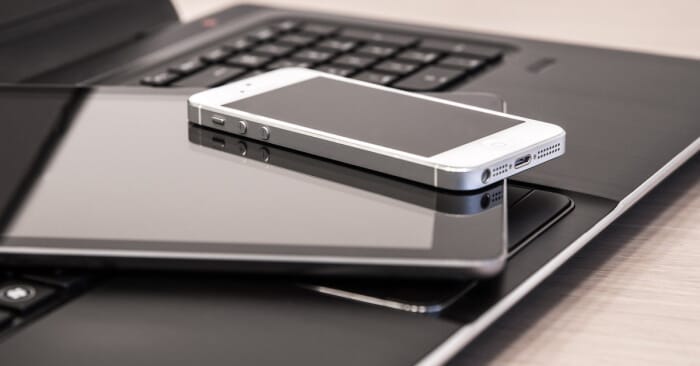As we all know, technology advances at a rapid pace. Chances are that every time you buy a new electronic device, a new model is already on the way. And unfortunately, that means that the model you just paid a premium price for will be worth a lot less soon.
When it comes to electronic devices, the moment you use the item, it immediately drops in value – even if there is no replacement model yet on the horizon.
Buying used electronics in good working condition at a pawn shop can save you a lot of money!
Read on for tips on how to buy electronics at a pawn shop, especially if you have not done so before.

10 Tips on How to Buy Electronics at a Pawn Shop
Here are our best tips for beginners on how to buy electronics at a pawn shop to ensure you get the most value for your money.
#1. Regularly Visit Pawn Shops
Pawn shops get new items all the time, and popular electronic devices at rock-bottom prices typically don’t stay on the shelves for long. By visiting pawn shops regularly, you’ll have a better chance of finding bargains.
Looking for a specific item and your local pawn shop cannot help you? Give them your contact information and ask them to call you the moment they get it.
Remember that, unlike retail stores, pawn shops don’t carry stock of electronic devices. They usually only get one item in at a time and sell it on a “first come, first served” basis.
#2. Know What You Want
Walking into a pawn shop with a wide variety of electronics for sale can be confusing. If you only have a rough idea of what you are looking for, it might be difficult for you to reach a decision.
Knowing the must-have features of the item you want can prevent you from wasting your time considering products that don’t match your needs. But remember to be open-minded. A pawn shop may have an item with additional features that’s only slightly more expensive but substantially more beneficial.
#3. Research Prices
Most products depreciate over time, but electronics, such as laptops and computers, typically depreciate faster than others. Exceptions, such as sought after and collectible vintage electronics do exist, but they are far and few between.
Before buying electronics at a pawn shop it’s always advisable to research current market prices. It will give you a guideline of whether or not an item is fairly priced.
Two sources that can help you determine the market value of electronics are:
eBay
Step 1. Search for the item you’re looking for, including the brand and model.
Step 2. Scroll down and look for the heading “Show only.”
Step 3. Tick the box next to “Sold Items.”
It will show you recently sold items and how much they sold for.
Do a search on Google for the item you’re looking for, and include the keyword “secondhand,” “used,” or previously owned.”
Note that not all used electronic equipment of the same brand, model, and year of manufacture are identical. Factors like condition play a huge role. But at least you’ll have a ballpark figure in your head when shopping for electronics at a pawn shop.
#4. Look For Defects
Carefully examine any item(s) you are interested in buying for defects while at the pawn shop. If an item is damaged, think twice before buying it unless the damage is negligible and won’t affect its performance.
Noticing damage afterward can be problematic as a pawn shop might argue you bought it “as is” or that you’re responsible for the damage. Note that normal wear and tear should be expected.
#5. Test the Item Before Buying
As a rule, pawn shops always test electronics to ensure they’re working properly before buying them. They’re not going to sell you a television “in good working condition” when they know it’s not working.
However, always test the item before buying it. For example, display devices, such as televisions, may have burn-in issues where an image (called a ghost image) is permanently displayed when you switch it on.
In addition, you can’t rule out the possibility that someone working at the pawn shop or another customer might have inadvertently or accidentally damaged an item. Rather be safe than sorry!
#6. Check for Cables and Accessories
Many electronics come out of the box with accessories, such as remotes, chargers, adaptors, etc. Check that the item you want to buy has all its original accessories and cables.
While you may be able to replace something, such as a missing cable, it might be more difficult to find than you originally anticipated. Besides, do you want to run around looking for cables or accessories that should have been included in the purchase price?
#7. Age and Condition Matters
Pawn shops typically don’t buy or sell electronics that are more than two years old. But don’t assume the item you want is less than two years old. Verify the age of an item with the pawn shop or through online research.
The older the item, the higher your risk that something might go wrong.
#8. Prices Are Generally Negotiable
Pawn shops are usually open to negotiations. If you’re not comfortable with the price a pawn shop is asking, inform them of your reason(s) and tell them what you can pay.
For example, tell them the item you want is more than two years old (assuming it is), and you have seen it cheaper elsewhere. Or tell them that some accessories are missing and that it will take you time to replace them.
You are always free to ask for a better price. But if you can motivate why you should get one, you have a better chance of success. Doing your research before going to a pawn shop might help you get a better price.
#9. Look Elsewhere if Necessary
If you cannot find the item you want, or in the condition you want it in, or can’t agree on a fair price, look elsewhere. As a rule, pawn shops will never pressure you to buy something. As a buyer, you always have the last word.
#10. Ask for Advice
Pawn shops typically have in-house experts on a variety of items, including electronics. Even if you consider yourself to be knowledgeable, it won’t hurt to get a second opinion from a pawn shop.
Remember that pawn shops buy and sell electronics all the time. They may possess knowledge or insight into a particular item you might not have. Discussing your requirements and asking questions to someone who has a lot of experience dealing with electronics might be worthwhile.
That's a Wrap
Pawn shops are great places to shop for affordable electronics in good working condition. They often have a wide choice of electronic devices you can secure for much less than new models.
If you’re looking for electronic equipment, visit your local pawn shop first before spending money on new equipment. You might find exactly what you need at a fraction of the price.
Want a high-end DSLR camera and equipment, an Apple product, laptop, or computer? Maxferd has in-house experts ready to assist you. And if you don’t have sufficient funds to buy a product right away, our layaway program is an easy and affordable way to secure it.
Call us at (800) 888-7296 or visit one of our pawn shops in Los Angeles or our San Francisco pawnshop to find out how we can assist you.

